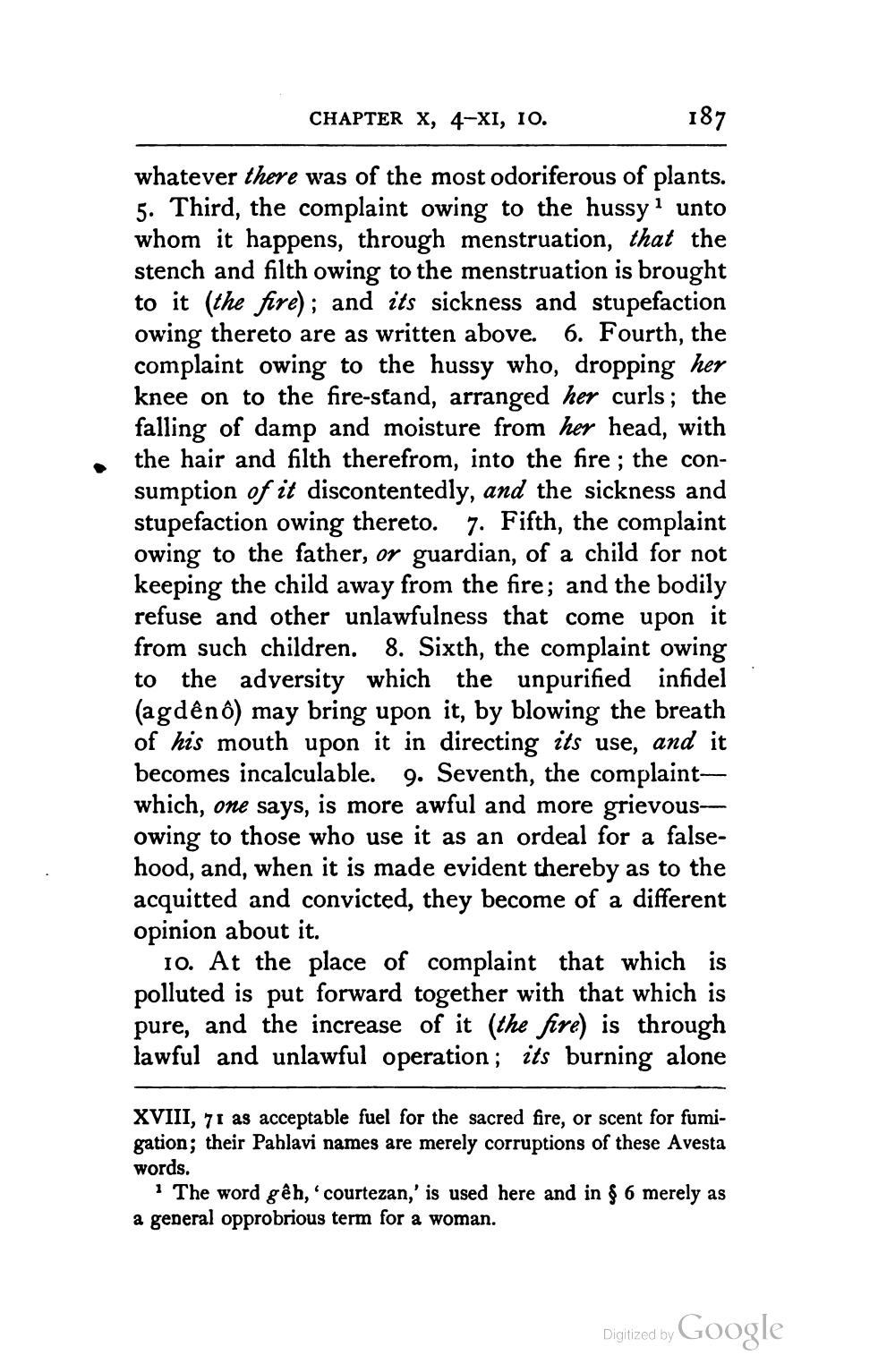________________
·
187
1
whatever there was of the most odoriferous of plants. 5. Third, the complaint owing to the hussy unto whom it happens, through menstruation, that the stench and filth owing to the menstruation is brought to it (the fire); and its sickness and stupefaction owing thereto are as written above. 6. Fourth, the complaint owing to the hussy who, dropping her knee on to the fire-stand, arranged her curls; the falling of damp and moisture from her head, with the hair and filth therefrom, into the fire; the consumption of it discontentedly, and the sickness and stupefaction owing thereto. 7. Fifth, the complaint owing to the father, or guardian, of a child for not keeping the child away from the fire; and the bodily refuse and other unlawfulness that come upon it from such children. 8. Sixth, the complaint owing to the adversity which the unpurified infidel (agdênô) may bring upon it, by blowing the breath of his mouth upon it in directing its use, and it becomes incalculable. 9. Seventh, the complaintwhich, one says, is more awful and more grievous-owing to those who use it as an ordeal for a falsehood, and, when it is made evident thereby as to the acquitted and convicted, they become of a different opinion about it.
CHAPTER X, 4-XI, 10.
10. At the place of complaint that which is polluted is put forward together with that which is pure, and the increase of it (the fire) is through lawful and unlawful operation; its burning alone
XVIII, 71 as acceptable fuel for the sacred fire, or scent for fumigation; their Pahlavi names are merely corruptions of these Avesta words.
1 The word gêh, 'courtezan,' is used here and in § 6 merely as a general opprobrious term for a woman.
Digitized by
Google




